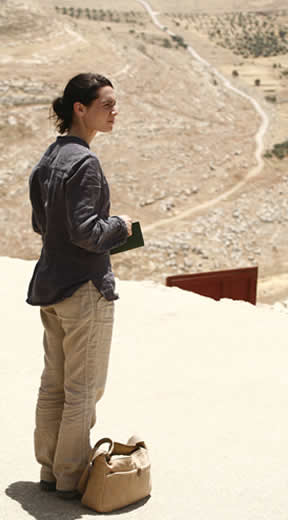 When notary Lebel (Rémy Girard) sits down with Jeanne and Simon Marwan (Mélissa Désormeaux Poulin, Maxim Gaudette) to read them their mother Nawal’s will (Lubna Azabal), the twins are stunned to receive a pair of envelopes – one for the father they thought was dead and another for a brother they didn’t know existed.
When notary Lebel (Rémy Girard) sits down with Jeanne and Simon Marwan (Mélissa Désormeaux Poulin, Maxim Gaudette) to read them their mother Nawal’s will (Lubna Azabal), the twins are stunned to receive a pair of envelopes – one for the father they thought was dead and another for a brother they didn’t know existed.
In this enigmatic inheritance, Jeanne sees the key to Nawal’s retreat into unexplained silence during the final weeks of her life. She immediately decides to go to the Middle East to dig into a family history of which she knows next to nothing.
Simon is unmoved by their mother’s posthumous mind games. However, the love he has for his sister is strong, and he soon joins her in combing their ancestral homeland in search of a Nawal who is very different from the mother they knew.
With Lebel’s help, the twins piece together the story of the woman who brought them into the world, discovering a tragic fate as well as the courage of an exceptional woman.
Here is our interview with Denis Villeneuve, director of Incendies.
Bijan Tehrani: My first question is how did you come across the play that Incendies is based on?
Denis Villeneuve: It is a coincidence, I was in Montreal and I was at the Wajdi Mouawad’s office that is very well known in Canada and every time he is making a new show it is a big event and I just went there in order to see the last creation and I did not know that I was going there in order to make a film, I was not looking for it, I never thought that I will make a theatrical adaptation one day, it’s just that I was astonished by how beautiful the play was.
BT: Is the play based on a true story? 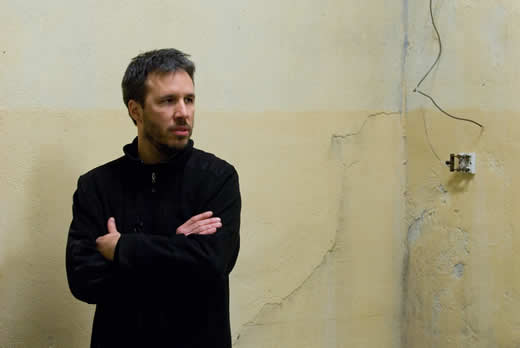
DV: No, it is based on events that occur in the Lebanese civil war in the 70’s, for instance, in the 70’s and 80’s, there was the Sabra and Shatila massacre or the bus attack that occurred in 1975 in Beirut. The mother character is based on a Palestinian woman that tried to kill a military chief in the south of Lebanon in the 80’s and spent ten years of her life in a very small jail in the south of Lebanon. I can say that Wajdi Mouawad was extremely inspired by this woman, by her courage, by her political engagements and by her resistance, but the movie and play had no historical value at all, because there is a huge political transposition; so let’s say that it is inspired by some specific events leading up to the war but is has no historical value at all.
BT: It reminds me of the very old and traditional Middle Eastern storytelling values, was this intentional?
DV: As I said the play has been written by a Lebanese, he was really inspired by Greek tragedy and of course I am sure that he has been inspired of by his old country, like how you are saying that it reminds you of some old middle eastern stories; well that should add to the question of more or what.
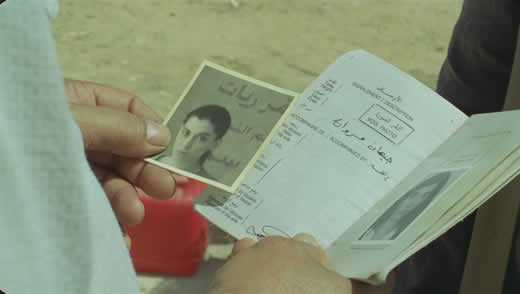 BT: ncendies is a very daring movie to make at this time, how have the reactions been to the film?
BT: ncendies is a very daring movie to make at this time, how have the reactions been to the film?
DV: Like the play the movie has gotten a very strong reaction. The movie has been sold everywhere in the world and has a good box office success. In Canada and in France it has been very, very well received so far. The film was a critic success and everyone is surprised and very happy.
BT: One of aspects of your adaption is that your film does not carry any of the weaknesses that movies adapted from a stage play have. how did you manage to do that and how much work was it to make the transition from stage to the screen?
DV: It was a lot of work and a lot of fun because the play is a masterpiece and it is full of very powerful ideas and image and those images were very theatrical so it was a huge, long work in order to adapt it for screen. I kept the main story, the same dramatic structure and the same characters, but beside that I changed so many things in order to make the film, I must say that the author of the play gave me all of that freedom, he said to me that he was giving those rights on one condition, and that was for me to be free and do whatever I wanted in order to make the right film out of his play.
BT: How did you come up with the visual style of Incendies? 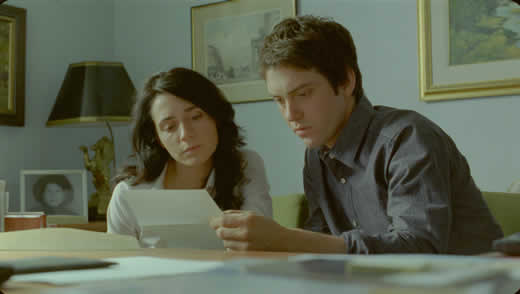 DV: The truth is the play already had its own kind of visual structure, the dialogue between past and present and going back between the modern times and the past, it was already like that in the play. It was different of course because on the stage it was using a theatrical device in order to go back and forth in time, I just kept the same idea and made it photographic. Of course it was a challenging and lengthy work during the screenwriting stage in order to be sure that we won’t lose the audience, especially when we talk about politics. My dream was that audience would feel the complexity of this war without losing the dramatic track.
DV: The truth is the play already had its own kind of visual structure, the dialogue between past and present and going back between the modern times and the past, it was already like that in the play. It was different of course because on the stage it was using a theatrical device in order to go back and forth in time, I just kept the same idea and made it photographic. Of course it was a challenging and lengthy work during the screenwriting stage in order to be sure that we won’t lose the audience, especially when we talk about politics. My dream was that audience would feel the complexity of this war without losing the dramatic track.
BT: I think Incendies is more about the human nature and the nature of violence than just a specific political situation.
DV: I totally agree with you, it’s more about family and relationships and the anger that is traveling inside the family and inside of society.
BT: How did you go about casting the film?
DV: As I could not find the actress to play the mother in Canada, I looked for her in Europe, and I picked Lubna Azabal for that part. I am very proud of her work; Lubna was the prefect to portray Nawal. For the mother part I was looking for an actress with the strength and inside fire that makes us believe that she would be able to travel across all of those areas and violent events. It is amazing how Lubna Azabal was able to put the whole weight of the movie on her shoulders and carry it to the end. We went through a long casting process to find the twins, they were very hard to pick because I was looking for a daughter that would look very much like the mother, and it was a long, long process. I chose Rémy Girard to play notary Jean Lebel, Rémy is a well-known actor in Canada and from the start I had him in mind writing the screenplay. The rest of the parts were played by Iraqi and Lebanese living in Jordan.
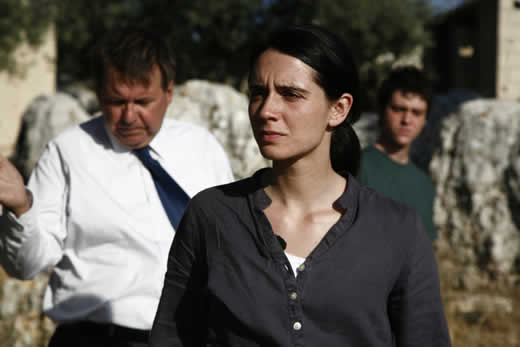 BT: How did you work with the actors, did you encourage improvisation or did you rehearse a lot before shooting?
BT: How did you work with the actors, did you encourage improvisation or did you rehearse a lot before shooting?
DV: The trick is that with the professional actors is that you just have to find a way to communicate, when I am front of an actor I want communication and try to see how I can communicate with them and work with them. And with armature actors I need a lot of workshop time because armature actors need to practice to feel comfortable in front of the camera and while having those workshops the armature actors brought new ideas to the script.
BT: Incendies is very relevant to what is happening in or world today, do you agree with this idea?
DV: The thing is that the movie is about the cycle of violence and anger. One of the thematic of this film is the repetition of this cycle, and we end the movie talking about the current issues in the world.
BT: Do you have any future projects lined up?
DV: Right now I just finished press for this film and I am heading back to my country and I am looking forward to starting work on something else and going back to cinema.

